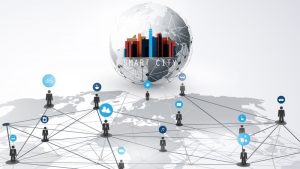As state governments look to slow the spread of COVID-19, they are having to stand up massive contact tracing efforts practically overnight. When deciding how to best tackle the new project, the state of Maryland turned to a cloud-based call center.
New research from London-based Pearson finds that three-quarters of respondents to its Global Learner Survey believe that the coronavirus pandemic has “fundamentally changed” education toward more technology-centric delivery modes, with two-thirds of those surveyed saying that educational institutions need to improve their technology services to keep up with the trend.
The Hawaiʻi State Department of Education (HIDOE) announced the launch of its ʻOhana Help Desk, which will provide self-service and chat support for families experiencing issues connecting to HIDOE systems remotely from home. In an Aug. 4 press release, HIDOE said the state has invested $1.7 million to establish the help desk.
A Department of State program is offering up to $10 million to help identify bad actors, individuals who are working with or for a foreign government with the purpose of interfering with U.S. elections through certain cyber acts.
A top U.S. intelligence community leader said today the IC doubts the ability of U.S. adversaries to manipulate the results of U.S. general election voting in any widespread way, while warning that exploits may be attempted against election infrastructure with a goal of interfering with voting processes, stealing data, and casting doubt on the democratic process.
The Illinois Department of Innovation & Technology (DoIT) announced Aug. 6 the publication of a new website to provide a consolidated resource for Science, Technology, Engineering, Arts, and Mathematics (STEAM) in Illinois.
In light of the COVID-19 pandemic, the Mississippi Department of Education (MDE) is working with local school districts statewide to implement two new pieces of legislation designed to give school districts the technology they need to facilitate distance learning.
The State of New York is looking to invest heavily in modernizing K-12 technology. Governor Andrew Cuomo announced that the state has allocated $94 million for “reimagining teaching and learning for the 21st century.” As part of this round of funding, Cuomo approved 148 Smart Schools Investment Plans.
The National Science Foundation is investing in introducing quantum information science into K-12 schools, awarding a $750,000 award to an Illinois-based organization that is looking to spread quantum-related curricula.
Data can come in many forms – census data, tax information, even video footage – but whether data is structured in a spreadsheet or unstructured in myriad other forms used to be the key determinant in what insights could be drawn from it. Not anymore.













